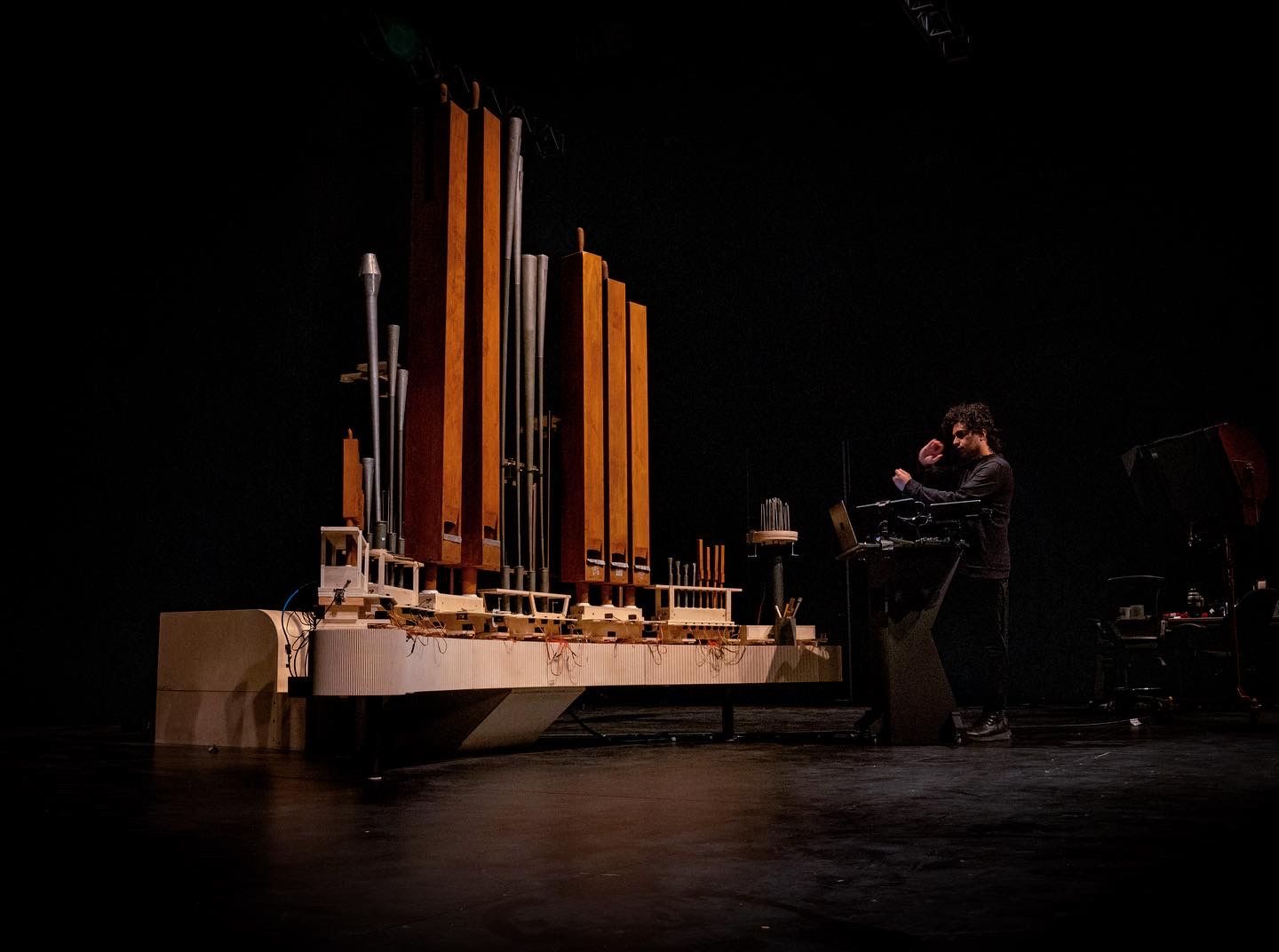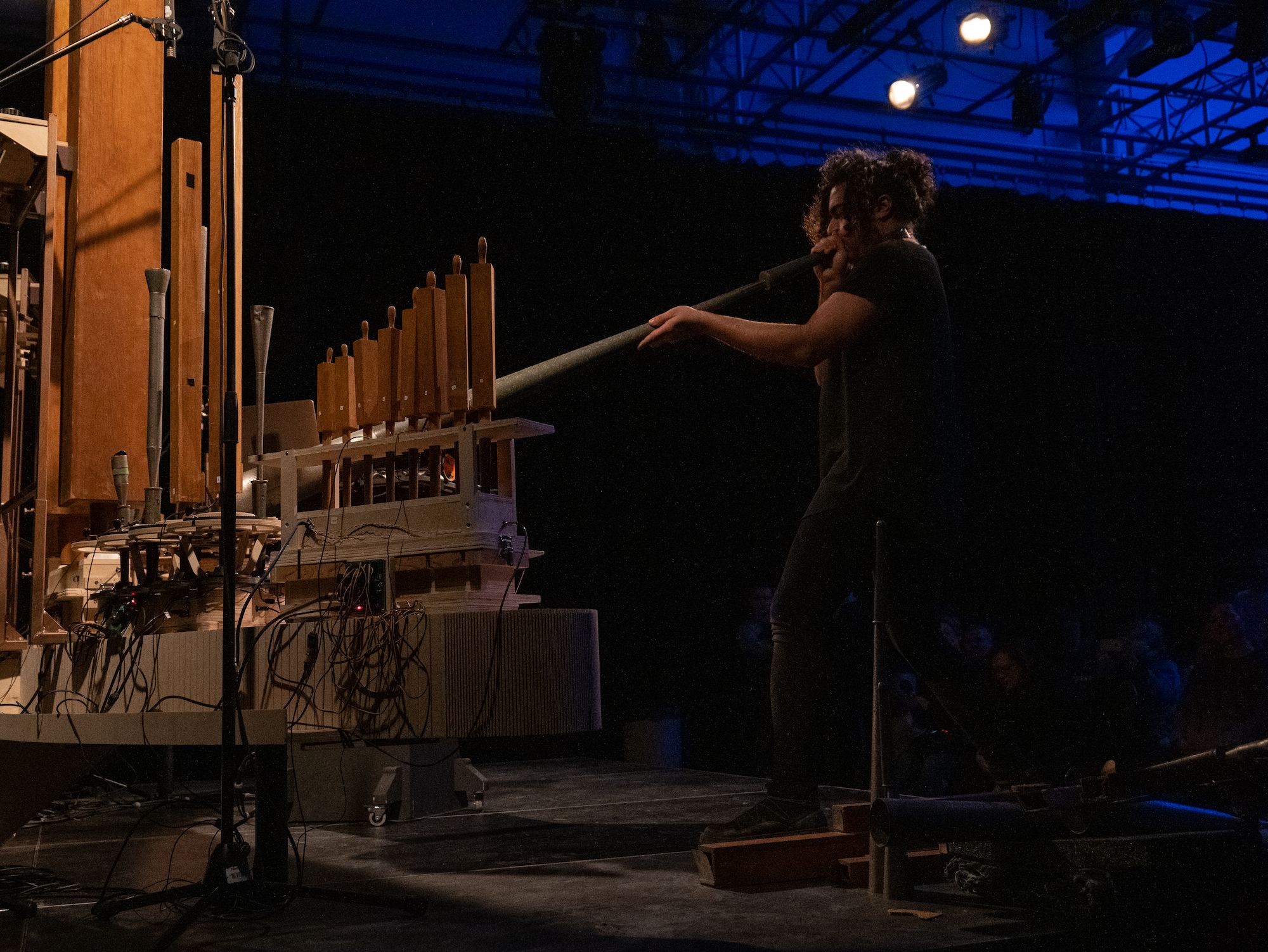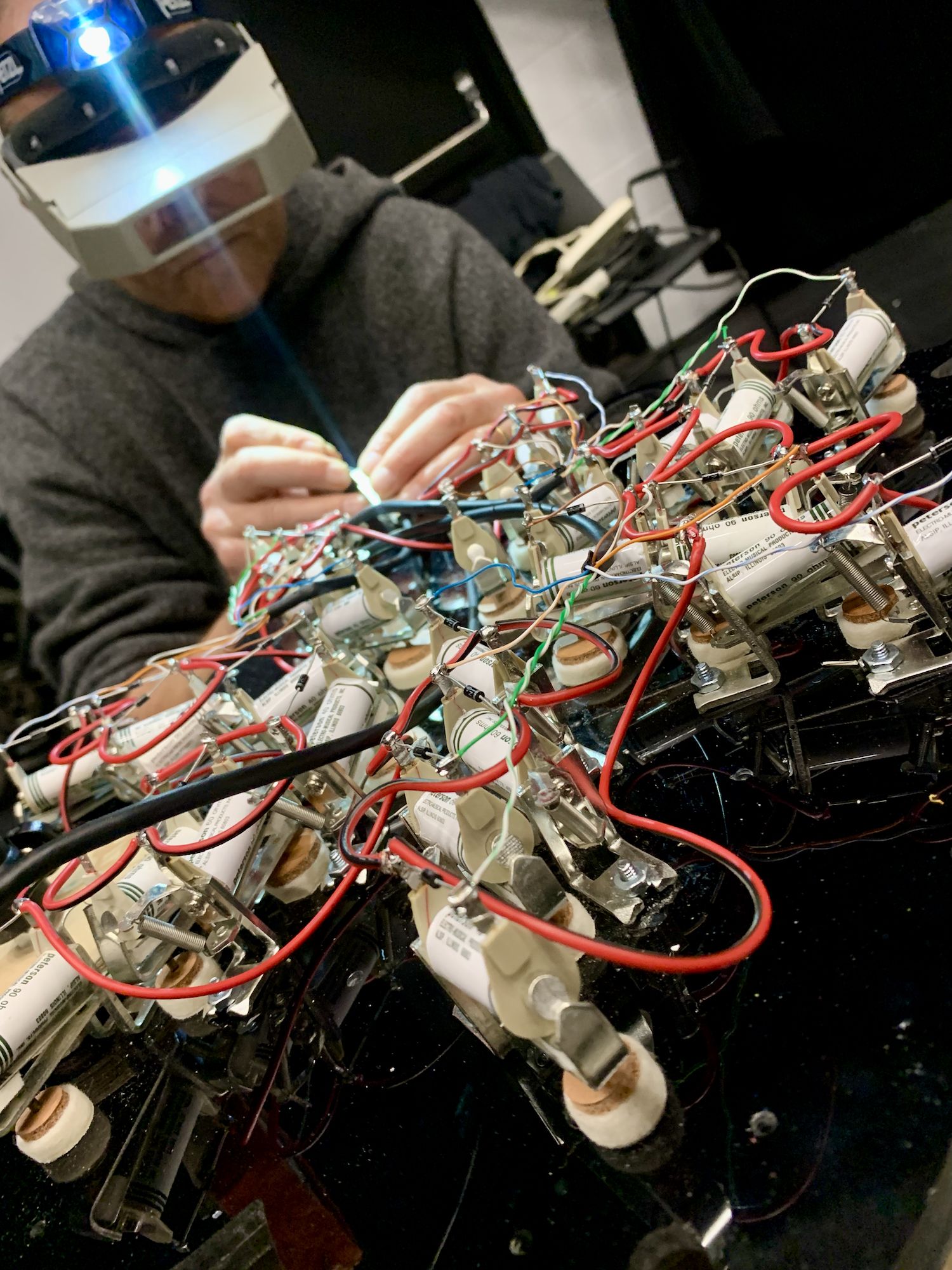DIFFRACTING AFRICA :
SIGNIFYING BLACKNESS WITHOUT DISTINCTION
Muindi Fanuel Muindi
Thursday 11 April, 5pm British Summer Time
Third session in Experiment & Experience: A Polyphonic Seminar on Indeterminacy and Play, Collège international de
philosophie Paris and Kings College London
Western anthropologists studying the indigenous cultures of Black Africans on the continent have, all too often, been intent upon searching for “old ways” that have persisted in spite of the “modern” history of the continent, hoping to gain insights into
“pre-modern” and “primitive” peoples. The reality is, however, that the cultural practices of indigenous Black Africans on the continent observed by these anthropologists have all been formed, to some degree, in response to one of the greatest sequences of
geographic, demographic, and historiographic catastrophes, from the Slave Trade, to the Colonial Scramble for Africa, to the Organized Abandonment and Underdevelopment of the Postcolonies.
Similarly, Western anthropologists examining aspects of continental Black African cultures that seemingly persist in diasporic Black African cultures have, all too often, imagined that they are observing “old ways” that have persisted in spite of the genocidal,
ethnocidal, and ecocidal machinations of racial capitalism. In reality, however, they are observing the dynamic play of homologous and analogous developments and recombinatory Trans-Atlantic crossings, back and forth, between the cultural ecologies of the
continent and the diaspora -- all being responses (and not simply reactions) to the apocalyptic events of the past six centuries on both sides of the Middle Passage.
Taking the above into consideration, this lecture will attempt to re-articulate the schism between the continent and the diaspora as an evolving object of philosophical study by re-appropriating and re-evaluating the psychoanalytic anthropologies and ethnographies
that informed Deleuze and Guattari’s Schizoanalysis, re-reading them alongside the work of W.E.B. Du Bois, Franz Fanon, George Jackson, Hortense Spillers, Achille Mbembe, Saidiya Hartman, R.A. Judy, Fred Moten, and Denise Ferreira da Silva. In so doing, this
lecture will make the case for an Anti-Oedipal Blackness and an Afro-Schizoanalytics that runs counter to applications of Western psychoanalytics and schizoanalytics to anthropologies of continental and diasporic Black Africans.
BIO
Muindi Fanuel Muindi is a performance artist, philosopher, and poet, with Lacustrine Bantu roots in the Rift Forests of Eastern Congo and the Mara Wetlands in Tanzania. He is the author of six books of experimental poetry and prose. Muindi’s philosophical
perspective, his “deconstructive empiricism”, is deeply affected by Bantu philosophies and by Western deconstruction and schizoanalysis, and it is subtly informed by figures, functions, and structures from comparative biology and measure theory.
Muindi’s performances, his “philosophical gestures”, deploy dramatic devices to create sensuous experiences that deepen understandings of the metaphysical catastrophe of coloniality and that broaden the prospects of the Black Arts and Decolonial Sciences.
Having adopted the motto “more grit, less kit”, Muindi’s performance practice privileges high latency, low fidelity, and seamful designs and the use of TEK (Transformative Ecological Knowledges).
Muindi is co-founder of the Fyrthyr Institute for Unsettling Technologies, coordinator of the “
Prototyping Social Forms” and “
Alter-Eco”
research streams at the Synthesis Center, an organizer at the Center for Concrete and Abstract Machines, co-producer and audio engineer for the Forested Niches podcast, and a member of the “After School”, “Technologies of Critical Conscientization”, and “Unwriting
Nature” research communities at the Center for Art Design + Social Research.
***
The CIPh series : Experiment and Experience: A Polyphonic Seminar on the Dao of Indeterminacy and Play
is organized by
Cécile Malaspina, Directrice de programme, Collège international de philosophie, Paris, Visiting Research Fellow at King's College London and UWE
&
Sha Xin Wei, Director of
Synthesis, and Professor in the School of Arts, Media + Engineering at Arizona State University
Seminar organised in partnership with Professor Patrick ffrench, King's College London, Dr Miguel Prado Casanova, University of the West of England and Professor Francesco Tava, University of the West of England
All sessions will be online at 17:00-19:00 pm London (GMT+0 or British Summer Time)











